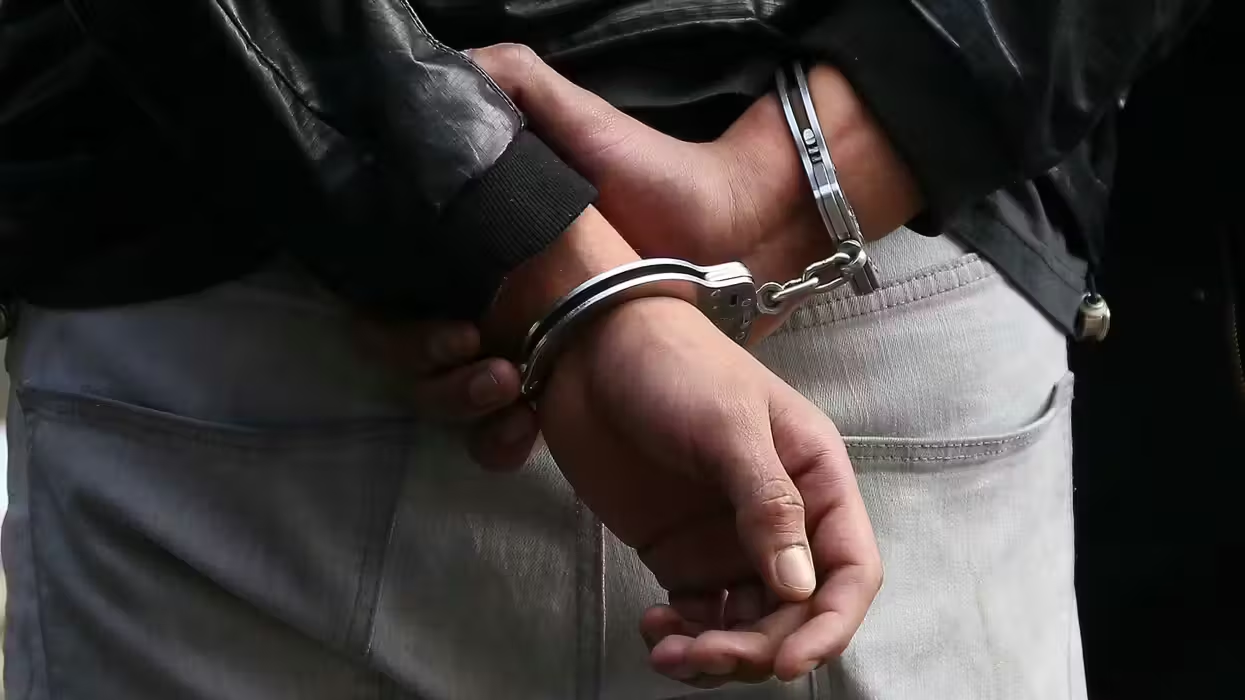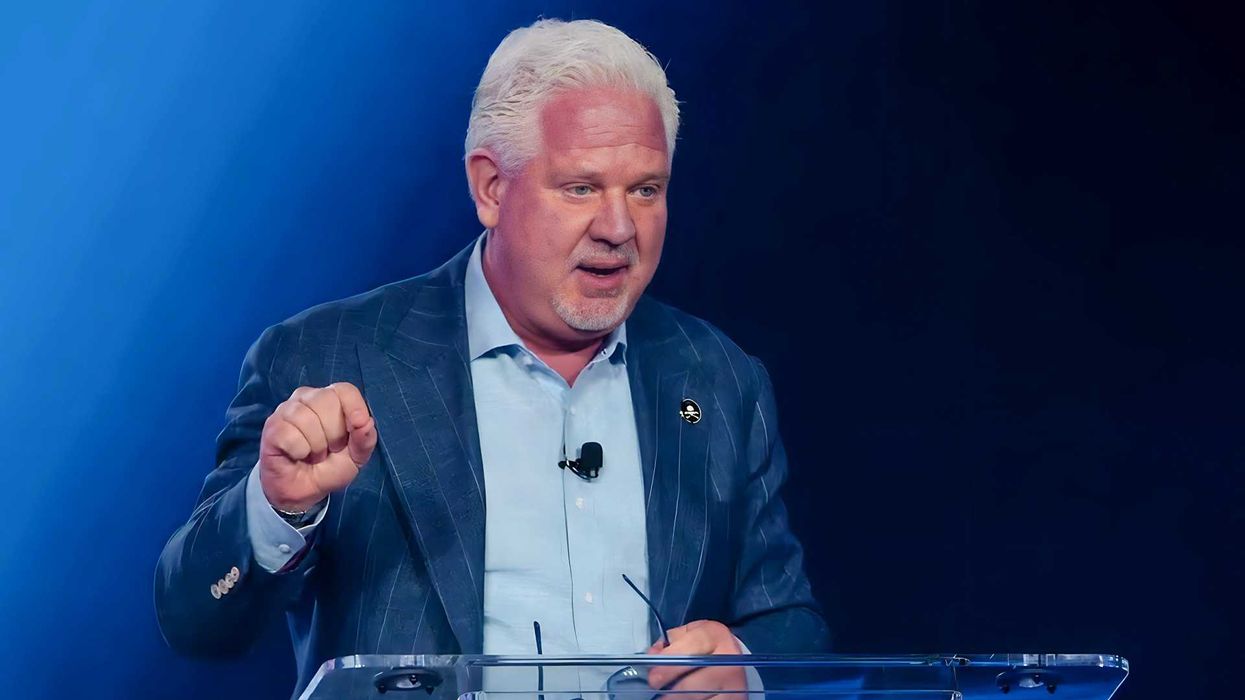
© 2025 Blaze Media LLC. All rights reserved.
California City Wants to Mount License Plate Readers on Trash Trucks to ‘Scan Every Single Car as They Go\
August 21, 2015
"A little too extreme."
Some police departments across the country have license plate readers mounted on their cruisers, scanning the plates of cars as they pass by, looking for everything from registration issues to stolen vehicle reports to outstanding warrants. Now, one California city is looking at applying the technology outside of police vehicles.
 A "License Plate Reader" or LPR, one of two mounted on the trunk of a Metropolotian Police Department(MPD) is seen on a police car in Washington, DC, December 1, 2011. It works silently in the backround automatically recording automobile license plates that drive by and then rapidly checks a computer database of stolen or wanted cars. Hundreds of MPD police cars have the cameras forming a virtual net looking for stolen vehicles. (Photo credit should read PAUL J. RICHARDS/AFP/Getty Images)
A "License Plate Reader" or LPR, one of two mounted on the trunk of a Metropolotian Police Department(MPD) is seen on a police car in Washington, DC, December 1, 2011. It works silently in the backround automatically recording automobile license plates that drive by and then rapidly checks a computer database of stolen or wanted cars. Hundreds of MPD police cars have the cameras forming a virtual net looking for stolen vehicles. (Photo credit should read PAUL J. RICHARDS/AFP/Getty Images)
A San Jose City Council committee this week approved a plan to test license plate readers on trash trucks.
The plan, according to KPIX-TV, was proposed by Mayor Sam Liccardo and councilmen Johnny Khamis and Raul Peralez, and is thought to be a possible aid to the police department, which only has six license plate readers with plans to purchase two more.
"They actually scan every single car as they go and it will be a great way to sweep the whole city, at least once a week for stolen cars," Khamis told KNTV-TV. "Also helpful in triangulating positions for current fugitives, or robberies in progress, or even abducted children."
Khamis added to the news station that the data will not be used "for anything other than stolen vehicles, Amber Alerts and robberies in progress."
Here's more from the city council committee's memo on how the technology could be used (via San Jose Inside):
As we continue to struggle to recruit and retain police officers, it is imperative that we utilize any technologies at our disposal to thwart crime. As part of the City Budget for the 2015-2016 Fiscal Year, tbe City Council authorized $68,400 in one-time funding along with $3,000 in annual maintenance funding for the purchase of two additional license plate readers for the SJPD. Mounting these readers on our waste haulers' garbage trucks would be a unique and effective strategy to begin to maximize the utilization of this technology.Garbage trucks cover the entire city every week and, in doing so, provide us with an opportunity to scan all vehicles parked or abandoned on residential streets. License plate readers can almost instantaneously run license plates for warrants and stolen vehicle status, with the data going directly to the SJPD. When abandoned vehicles are identified as stolen, for example, a community service officer can respond to process the evidence connected with the abandoned vehicle and subm.it that evidence for further identification. The vehicle may also be more quickly returned to the victim so they can regain their access to transportation.
The memo also pointed to San Francisco as an example of a city that has license plate readers on non-police vehicles, using them on city buses to alert parking enforcement of cars in bus stop access areas. The city council committee voted in favor of proposing the plan with only one dissent from Councilman Chappie Jones, who KPIX reported said he thinks it's "a little too extreme."
Mayor Liccardo admitted that people get an "icky feeling" when it comes to technology like this that seems to carry a Big Brother vibe, but KPIX reported that the plan, which would only study the efficacy of these readers on garbage trucks at this point, will consider the privacy implications against the possible benefit for the local police department.
Privacy advocates, such as the American Civil Liberties Union, has noted some of the general concerns over automatic license plate readers and how the data collected from the technology is retained:
The information captured by the readers—including the license plate number and the date, time, and location of every scan—is being collected and sometimes pooled into regional sharing systems. As a result, enormous databases of innocent motorists’ location information are growing rapidly. This information is often retained for years, or even indefinitely, with few or no restrictions to protect privacy rights.
Documents obtained by the ACLU and reported on earlier this year, revealed how even the FBI has its privacy concerns over the information this type of technology can collect.
Louisiana Gov. Bobby Jindal, a GOP presidential candidate, vetoed a state senate bill for license plate readers in June, calling out the technology as "[making] private information readily available beyond the scope of law enforcement, [posing] a fundamental risk to personal privacy and [creating] large pools of information belonging to law abiding citizens that unfortunately can be extremely vulnerable to theft or misuse."
The full San Jose City Council will vote on the proposal in two weeks.
Watch KNTV's report:
—
Front page image via Shutterstock.
Want to leave a tip?
We answer to you. Help keep our content free of advertisers and big tech censorship by leaving a tip today.
Want to join the conversation?
Already a subscriber?
more stories
Sign up for the Blaze newsletter
By signing up, you agree to our Privacy Policy and Terms of Use, and agree to receive content that may sometimes include advertisements. You may opt out at any time.
Related Content
© 2025 Blaze Media LLC. All rights reserved.
Get the stories that matter most delivered directly to your inbox.
By signing up, you agree to our Privacy Policy and Terms of Use, and agree to receive content that may sometimes include advertisements. You may opt out at any time.






